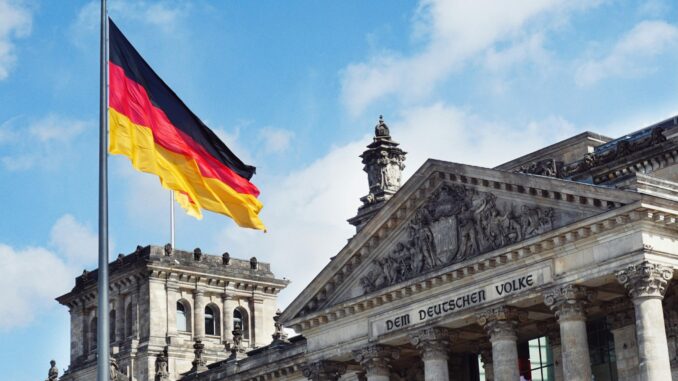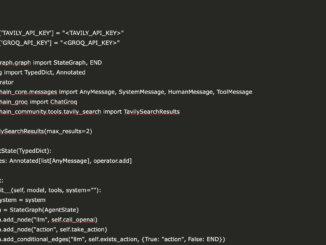
Germany and NVIDIA are embarking on what may be the most ambitious European tech endeavor of the decade: the continent’s inaugural industrial AI cloud.
NVIDIA has been touring Europe over the last month, with CEO Jensen Huang captivating audiences at London Tech Week before enchanting the crowds at Paris’s VivaTech. However, his dialogue with German Chancellor Friedrich Merz may turn out to be the most pivotal engagement.
The partnership formed between NVIDIA and Deutsche Telekom is not merely a corporate agreement; it could signify a pivotal moment for European technological independence.
An “AI factory” (as it’s being termed) will be established with an emphasis on manufacturing, which is hardly unexpected considering Germany’s esteemed industrial legacy. The facility intends to provide European industrial entities with the computational power needed to transform every aspect from design to robotics.
“In the age of AI, every producer requires two factories: one for fabrication and one for cultivating the intelligence that drives them,” stated Huang. “By constructing Europe’s first industrial AI infrastructure, we’re empowering the region’s principal industrial firms to embrace simulation-first, AI-driven production.”
It’s unusual to hear such urgency from a telecom executive, but Deutsche Telekom’s Timotheus Höttges added: “Europe’s technological destiny demands a sprint, not a leisurely walk. We must seize the chances presented by artificial intelligence now, revolutionise our industry, and secure a preeminent position in the global tech race. Our economic prosperity hinges on prompt decisions and collective innovations.”
The initial phase alone will implement 10,000 NVIDIA Blackwell GPUs distributed across multiple high-performance systems. This makes it Germany’s most extensive AI rollout to date; a declaration that the nation is not willing to merely observe as AI reshapes global industry.
A Deloitte report recently underscored the essential role of AI technology development for Germany’s future competitiveness, particularly highlighting the necessity for expanded data center capabilities. When considering that demand is anticipated to triple in just five years, this investment feels less like ambition and more like an imperative.
Robots instructing robots
One of the early adopters includes NEURA Robotics, a German company that focuses on cognitive robotics. They’re leveraging this computational strength to drive an initiative known as the Neuraverse, which is fundamentally a connected network where robots can learn from one another.
Picture it as a robotic collective mind for skills ranging from precision welding to home ironing, with each machine contributing its insights to a shared intelligence.
“Physical AI is the electricity of the future—it will energise every machine on the globe,” remarked David Reger, Founder and CEO of NEURA Robotics. “Through this project, we’re aiding in constructing the sovereign infrastructure Europe requires to excel in intelligent robotics and maintain control of its future.”
The ramifications of this AI initiative for manufacturing in Germany could be significant. This isn’t just about enhancing existing factories slightly; it’s about rethinking what manufacturing can become in an era of intelligent machines.
AI for more than just Germany’s industrial giants
What’s especially encouraging about this project is its potential influence beyond Germany’s industrial giants. The renowned Mittelstand – the network of specialised small and medium-sized enterprises that forms the backbone of the German economy – stands to gain.
These businesses often lack the means to develop their own AI frameworks but have the specialised knowledge that makes them ideal candidates for AI-enhanced advancements. Making state-of-the-art AI accessible could assist in preserving their competitive edge in a challenging global landscape.
Academic and research institutions will also gain access, potentially speeding up innovation across various domains. The approximately 900 startups in Germany that are part of NVIDIA’s Inception program will be eligible to utilize these resources, potentially unleashing a torrent of entrepreneurial AI applications.
The path to Europe’s AI gigafactory
However impressive this vast project is, it’s seen only as a stepping stone toward something even grander: Europe’s AI gigafactory. This planned 100,000 GPU-powered initiative, supported by the EU and Germany, won’t become operational until 2027, but it embodies Europe’s determination to chart its own technological future.
As other European telecom operators follow suit with their initiatives for AI infrastructure, we may be witnessing the dawn of a coordinated effort to establish technological independence across the continent.
For a region that has often found itself trapped between American tech dominance and Chinese ambitions, creating local AI capabilities signifies more than just economic opportunity. Whether this ambitious undertaking in Germany will thrive remains to be seen, but one fact is unmistakable: Europe is no longer satisfied to play the role of a passive consumer of AI technology developed elsewhere.
(Photo by Maheshkumar Painam)
See also: Sam Altman, OpenAI: The superintelligence era has commenced
Want to learn more about AI and big data from industry leaders? Check out AI & Big Data Expo taking place in Amsterdam, California, and London. The comprehensive event is co-located with other leading events including Intelligent Automation Conference, BlockX, Digital Transformation Week, and Cyber Security & Cloud Expo.
Explore other upcoming enterprise technology events and webinars powered by TechForge here.







Be the first to comment